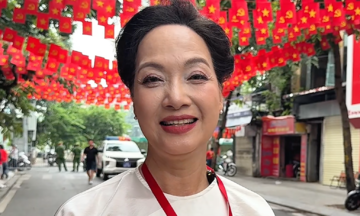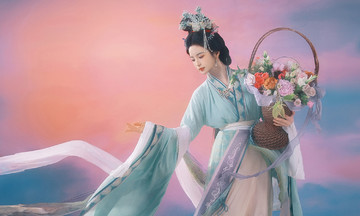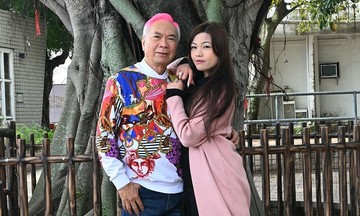Artist Huu Chau has released "The Golden Cradle in a Storm," a project he's cherished for years, written by Thanh Thuy. The book's eight parts and 40 chapters span Huu Chau's career, from childhood to becoming a veteran of the southern stage. VnExpress is publishing excerpts, with section titles provided by the editorial staff.
The two children within me
Ma Ba died. My childhood practically ended with her.
Almost unconsciously, I changed. An invisible marker divided the two children within me.
The first one was so carefree! Like a cheerful dice, rich and stylish, even when our family fell on hard times and resorted to street vending, the essence remained. At school, I was the "young master," in the theater troupe, the "darling grandson of the owner." Well-taught by my grandmother, I was mischievous but polite, enjoying creating imaginative scenarios, sometimes causing a ruckus backstage. At home, I had the privilege of whispering secrets to Ma Ba or enjoying sweet treats down the alley.
I vividly remember every detail, especially Ma Ba's long hair. It was a beautiful, smooth "waterfall of hair," just like in Van Phung's song: "Or go find the waterfall of hair on her shoulder...". Every time Ma Ba washed her hair, it was like a celebration for us children.
I was often called upon to apply fragrant oil with cotton balls, gently stroking her scalp. Then Ma Ba would spread her long, black hair in a basin of water, and someone would gently pour water over it from above. The shimmering water flowed through her hair, and Ma Ba would revel in the fragrant scent.
Oh, such a precious childhood!
The second child! I don't know where it came from, but shortly after the funeral, it merged with me, a melancholic version. Together, we silently observed my grandmother, seeing an ocean of unspoken grief in her. Because of this second child, my heart ached for her.
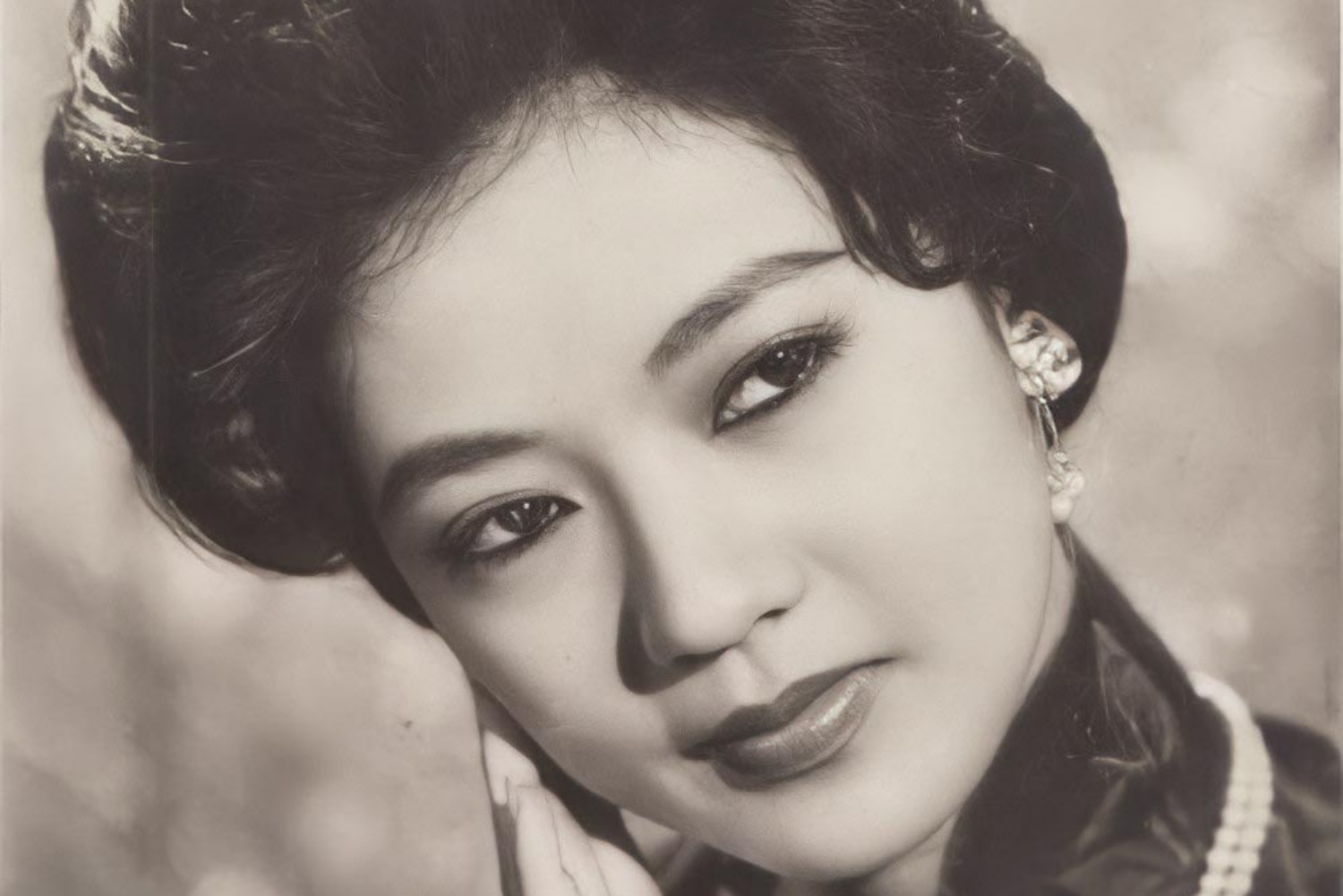 |
Artist Thanh Nga at the peak of her career. Photo: Archive |
Artist Thanh Nga at the peak of her career. Photo: Archive
I felt a silent pain hearing about Ma Ba's final moments. She was rushed to the hospital in a rickshaw. In the frantic dash, no one noticed her foot dangling out. Only when preparing her body did they see her painted foot badly scraped by the road.
So, my grandmother's pain must have been a thousand times greater.
We became more attentive to each other amidst the bustling extended family. Our love deepened, quiet and unspoken. I cared for her in small ways, offering betel leaves and water, serving her rice, sharing heartfelt words I struggled to express.
I saw her once-great theater troupe faltering. I began to think, searching for my place within it.
"Grandma, I've been doing well in school lately. Don't worry."
"Really? Study hard. Get a proper education first, then we'll see. I won't let you perform so young, don't ask."
"But can I join the troupe during summer, Grandma?"
"Focus on your studies. No matter how difficult, I'll make sure your parents give you a good education."
While my childish thoughts still wandered, still half-child, not yet a teenager, still a little prince, we... lost the theater troupe.
"Lost the theater troupe" was a common phrase among Saigon artists, referring to the government's policy of collectivizing private art troupes around 1978.
I was too young to understand. I only saw the panic and upheaval around me, a scattering of hearts that my memory retains.
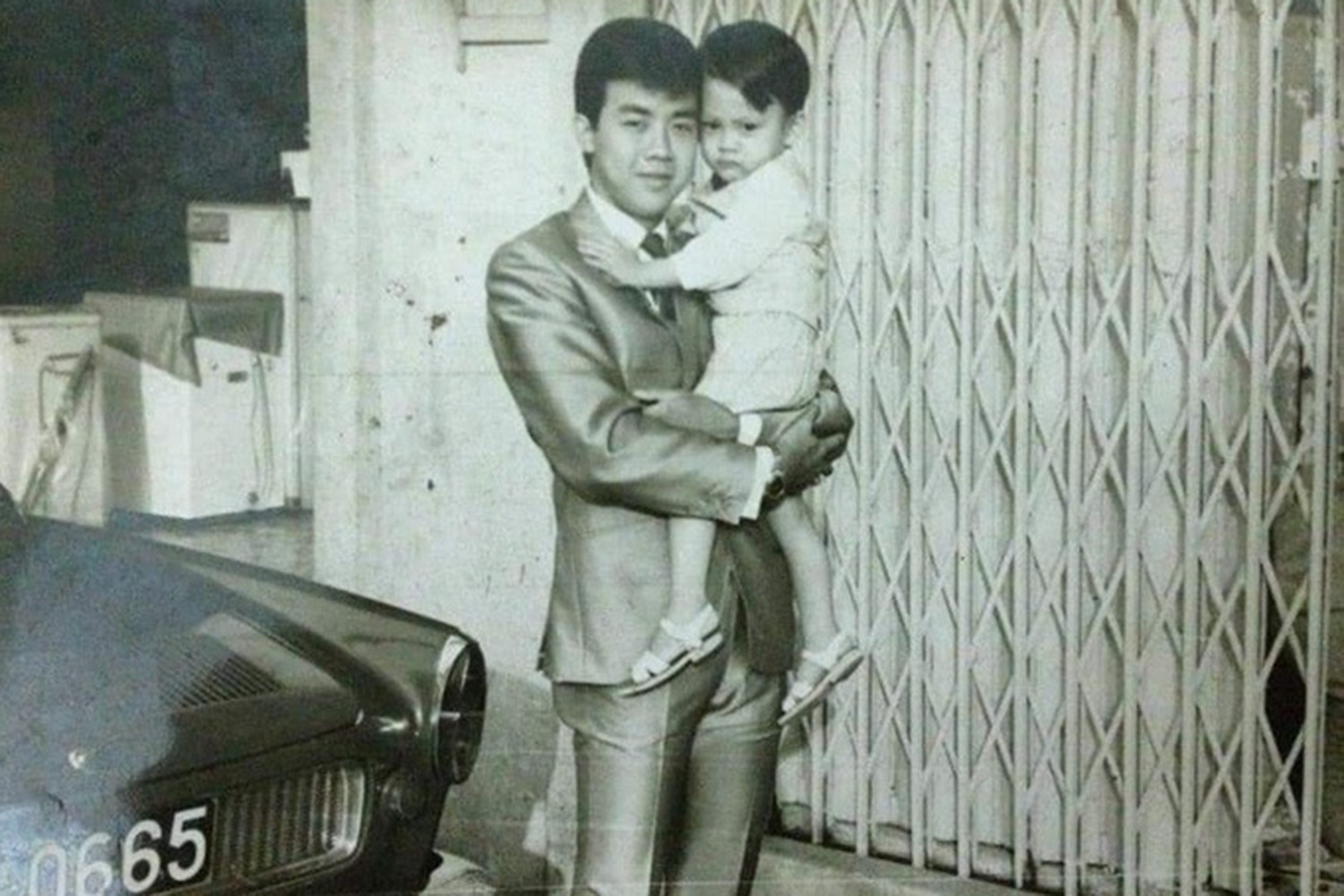 |
Artist Huu Chau as a child with his uncle - comedian Bao Quoc. Photo: Provided by the artist |
Artist Huu Chau as a child with his uncle - comedian Bao Quoc. Photo: Provided by the artist
When my grandmother was summoned to hear the new policy, she exchanged a few words with the government representative, then silently nodded and left. As the owner of a major troupe, her acceptance influenced many others. Artists and workers gradually left the theaters. Some became street vendors, some returned to their hometowns or joined new economic zones; even famous artists resorted to pedaling rickshaws. Everyone scrambled for whatever they could find.
Life was incredibly demanding. The Thanh Minh Thanh Nga Troupe (named after Ma Ba after her death) wasn't quite as badly off initially, as my grandmother still held the reins. She fought to preserve every bit, every person. The troupe shrunk but remained organized. Ma Ba's signature plays, like "The Drums of Me Linh," "Empress Dowager Duong Van Nga," and "The Heart of the Sea," were carefully maintained, with new artists replacing her.
Despite collectivization, no one shared the burden. Responsibilities increased, but authority was fragmented. No one cared for what was everyone's. My grandmother had to mortgage our house on Tran Hung Dao Street a second time to fund the troupe's tour to the north.
I knew she was lonely and exhausted. Her endurance and patience led to increasing silence. She often sat alone, chewing betel leaves, quiet. My once-dynamic grandmother retreated into resignation. She was a stark contrast to her usual self, sitting actively in her familiar chair, observing, directing, watching the troupe move rhythmically, a cheerful machine where everyone knew their part.
At 15, I was allowed to join the northern tour. My grandmother said:
"Before, when the troupe was entirely ours, family members had to work according to their abilities to earn a salary. I showed no favoritism but allowed relatives and children to come along. Now, with collectivization, things must be clear. Anyone joining the troupe must be on the payroll to receive rations, meals, and salary..."
"Yes, Grandma."
So I happily began my first nameless roles. I was an extra, a soldier among soldiers, not even a single soldier "with lines" (meaning I could say "yes, sir" or "as you command" on stage before running off). I accepted everything, from dancing to playing enemy soldiers or righteous troops. I persisted until one day, I was given the role of a sentry in "Empress Dowager Duong Van Nga." I sang "U liu u xang" with such joy, my chest swelling with pride.
That "U liu u xang" made me happy for a whole week.
To be continued
(Excerpt from Huu Chau - The Golden Cradle in a Storm)
59-year-old Huu Chau is one of the golden generation of TP HCM theater artists from the 1990s. Alongside Thanh Loc, Huu Chau performed for the Idecaf theater from the late 1990s, when its founder, Huynh Anh Tuan, first established it in a rented space at the Institute of Cultural Exchange with France. He has starred in numerous productions, from children's plays (the "Once Upon a Time" series) to adult plays ("Tam Cam," "Cau Dong," "Da Co Hoai Lang"), historical dramas ("Secrets of Le Chi Garden," "A Thousand Years of Love Story").
In the late 1990s and early 2000s, Idecaf breathed new life into Saigon theater with a series of hit plays. Huu Chau and Thanh Loc were considered pillars of the venue by both audiences and critics. In 2023, he joined the newly established Thien Dang theater. He has also acted in films like "Lo To" (2017), "Cua Lai Vo Bau" (2019), "Cong Tu Bac Lieu" (2024), "Lat Mat 8" (2025), and several television series.



